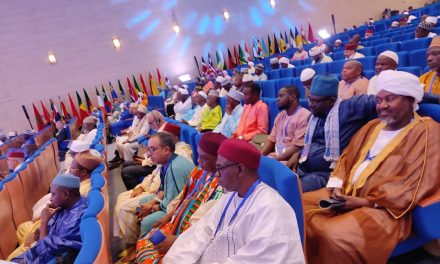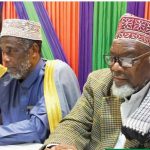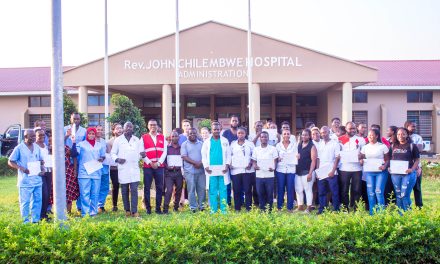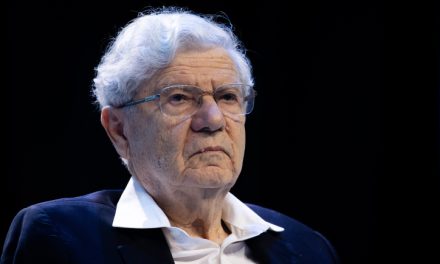
MEC Relocates to Lilongwe, Introduces New Strategic and Operational Plans
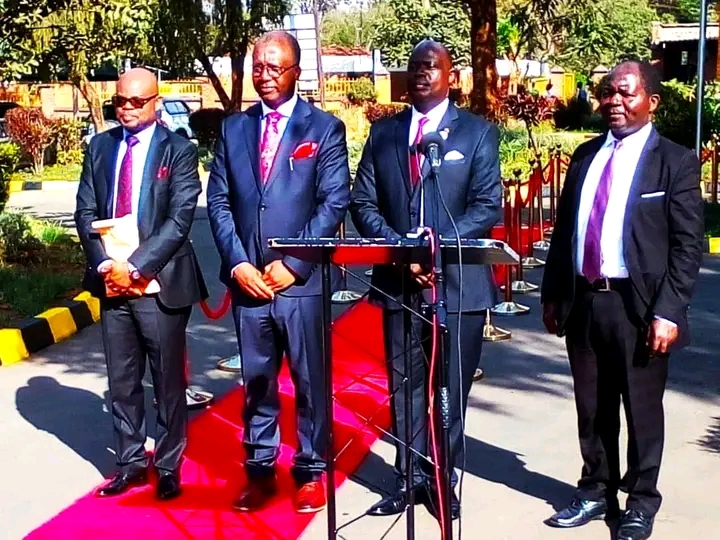
Malawi Electoral Commission which was previously headquartered in Blantyre has moved to Lilongwe where it has been allocated a new building as its head office. Minister of Lands, Deus Gumba, said the new building for the Malawi Electoral Commission (MEC) will be able to help the commission thrive in its performance.
Gumba said this in Lilongwe during the key handover ceremony of the new head office building on August 11, 2023.
Gumba went on to say that MEC’s decision to move to Lilongwe will help to ease the challenges MEC was facing
in its operations to consolidate democracy in the country.
“As we hand over the keys to the building, we are also handing over a renewed sense of purpose and commitment to uphold the sanctity of the running of the Commission. This will help the commission ensure that its independence is guaranteed and not undermined by lack of resources,” said Gumba.
In his remarks, the MEC Chairman Justice Chifundo Kachale said the relocation of MEC to the capital was one of its strategies as per its 2017 strategic plan.
“Lilongwe being in the Central region of the country enables MEC to transport staff and other materials to other distant districts like Chitipa,” he said.
“This will also make it easy for MEC to conduct its operations while being close to the capital city,” said Kachale.
Later on the day, MEC launched its strategic and operational plan to be used for the next 5 years.
The Malawi Electoral Commission says it is ready to perform amicably with safe delivery of elections that are credible and reliable.
Speaking in Lilongwe during the launch of the strategic plan 2023– 2028 and the 2025 tripartite elections operational plan, Kachale said MEC is working on improving the planning and management of all electoral activities, right from voter registration all the way to various aspects of results management processes including ballot counting.
The MEC chairperson further said that the plans outline the specific actions, timelines, and responsibilities
necessary to carry out each stage of the electoral process up to the results announcement for the 2025 tripartite
elections.
“From voter registration to candidate nominations, from ballot distribution to results declaration, every step
will require meticulous planning, coordination, and the participation of stakeholders,” Kachale explained.
The plan will help the institution operate smoothly with no hiccup.
MEC usually faces challenges which makes it fail to deliver voting booths on time in other locations due to bad roads and other communication barriers.
“As an institution, we are certain that these plans will be of great help in implementing MEC’s activities,” said
Kachale.
Among the stakeholders that were present at the launch of the strategic and operation plan were representatives of registered political parties, civil service organizations, government officials, development partners and the media.
Kachale further said that this is the fifth strategic plan for the Malawi Electoral Commission since its establishment.
“The first strategic plan was formulated for the period 2001–2004 and was succeeded, respectively, by the plans for the periods 2005–2009 and 2013–2017. The fourth one, which has just expired, covered the period January 2018 to December 2022,” he said.
The vision and mission of the plans are “a professional and trusted electoral management body that delivers credible elections in Malawi” and “to deliver credible elections according to the laws of
Malawi in entrenching democratic
values,” respectively.





